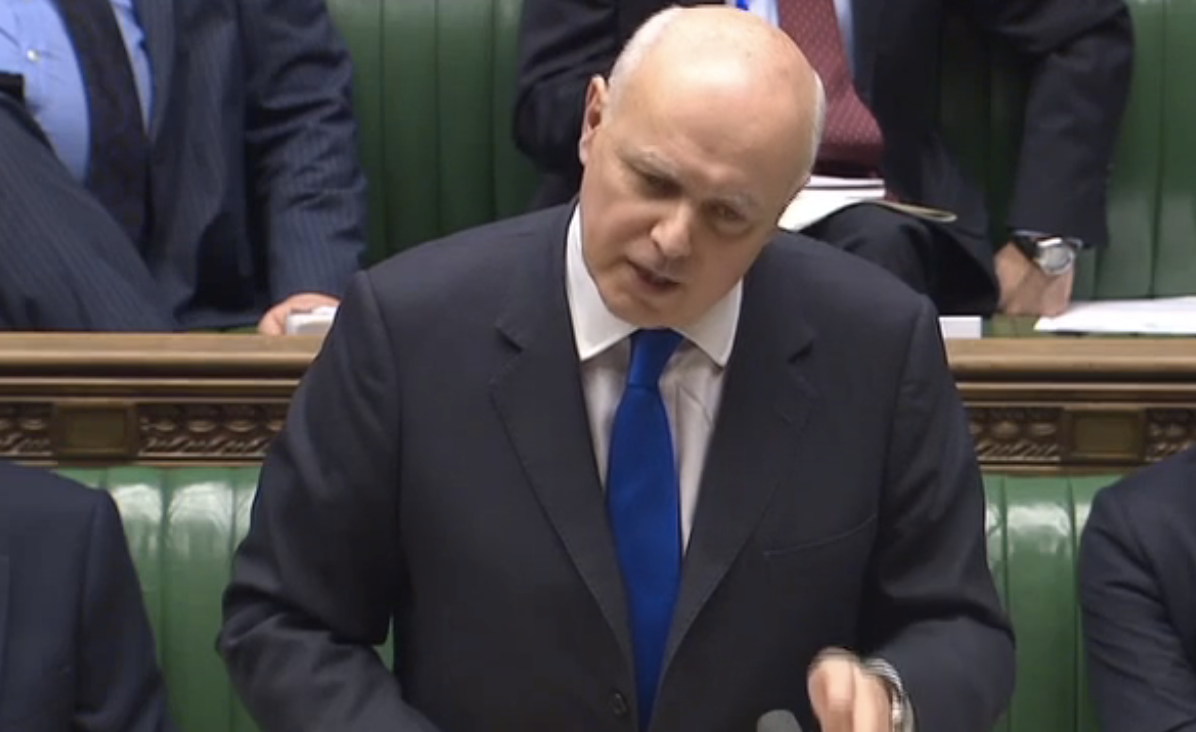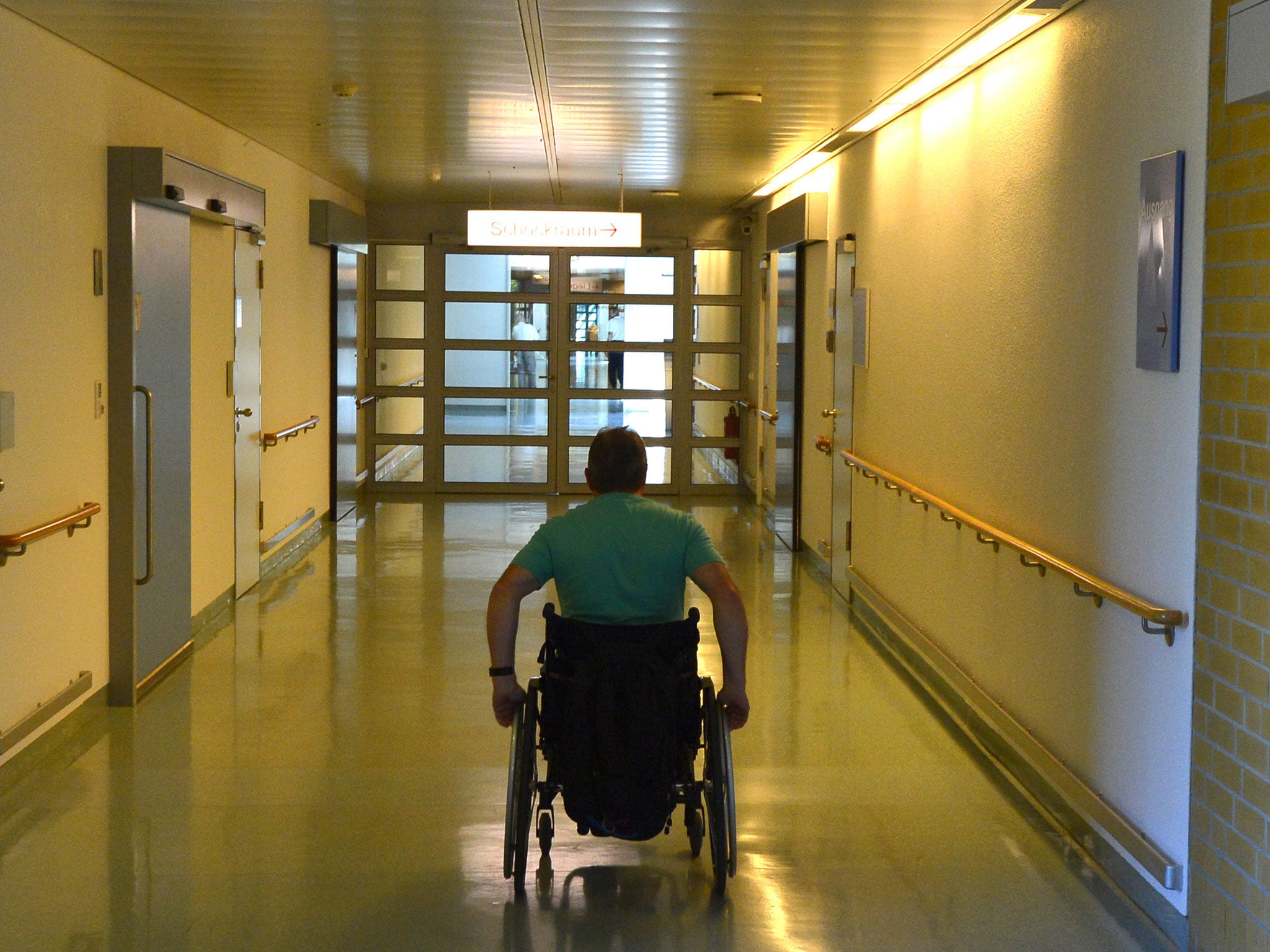Your support helps us to tell the story
From reproductive rights to climate change to Big Tech, The Independent is on the ground when the story is developing. Whether it's investigating the financials of Elon Musk's pro-Trump PAC or producing our latest documentary, 'The A Word', which shines a light on the American women fighting for reproductive rights, we know how important it is to parse out the facts from the messaging.
At such a critical moment in US history, we need reporters on the ground. Your donation allows us to keep sending journalists to speak to both sides of the story.
The Independent is trusted by Americans across the entire political spectrum. And unlike many other quality news outlets, we choose not to lock Americans out of our reporting and analysis with paywalls. We believe quality journalism should be available to everyone, paid for by those who can afford it.
Your support makes all the difference.The Government based the justification for its latest disability benefit cuts on untested “anecdotal” evidence – according to the very report cited by George Osborne to justify them.
Cuts to the Personal Independence Payment (PIP) confirmed by the Chancellor yesterday will raise £4.4 billion by 2020, by stripping people who use specially adapted appliances of payments.
Mr Osborne said this morning the policy had been recommended by an “independent report” – which a Government spokesperson later confirmed was the Gray Review, published at the end of 2014.
The actual text of the Gray Review however says its findings on adapted appliances are completely untested – and are in fact based on anecdotes repeated by the DWP’s own staff.
“Anecdotally, the Review heard from some case managers who felt they saw a higher than expected number of assessment reports where aids and appliances were used in justifications,” the brief half-page section of the report used to justify the policy says.
“Due to limitations in available published data, the Review has not been able to test this. “
Despite having no formal data to base its assessment on, the review recommended that the DWP should “review how aids and appliances are taken into account in PIP assessments against original policy intent, and make any necessary adjustments to guidance and training”.
Minister for disabled people Justin Tomlinson also said earlier this month that the Gray Review showed “the assessment criteria for aids and appliances are not working as planned” when he announced the cuts.
Mr Osborne and the Department for Work and Pensions have described the review as being “independent” of the Department for Work and Pensions. It was carried out by civil servant Paul Gray, who chairs the statutory and independently-appointed Social Security Advisory Committee.
Mr Gray used to partly run the DWP, when he served as its second permanent secretary. He also served as Margaret Thatcher’s private secretary for economic affairs.
The senior civil servant, who has served under both Labour and Conservative governments, stepped down as permanent secretary of HMRC in 2007 following that department’s loss of personal data for 25 million people.
The revelation about the lack of evidence in support of the PIP cuts comes the same month as one of the country’s foremost disability experts said she was left speechless by how poor ministers’ arguments for cutting another disability benefit was.
Baroness Campbell, a former Commissioner for Disability Rights and a crossbench peer, said she was lost for words when she heard Conservative justifications for cutting Employment Support Allowance.
That cut, which took £30-a-week from disabled people in the so-called “work related activity group”, comes in addition to the latest cuts to PIP.
The Health Secretary Jeremy Hunt has also been accused by doctors and academics of playing fast-and-loose with academic evidence to justify a new contract for junior doctors.

Mr Osborne said in his Budget speech on Wednesday that the new PIP cuts would make sure support was targeted at people who need it most.
“On welfare, last week the Secretary of State for Work and Pensions set out changes that will ensure that within the rising disability budget, support is better targeted at those who need it most,” he said.
“Let me confirm that this means the disability budget will still rise by more than £1 billion, and we’ll be spending more in real terms supporting disabled people than at any point under the last government.”
Labour has however accused the Conservatives of using the money raised from the PIP cuts to fund tax cuts for the richest – which cost roughly the same amount.
“Yesterday we made the point that austerity is not an economic necessity – it’s a political choice and yesterday the Chancellor made his political choices,” the shadow chancellor John McDonnell told BBC Radio 4’s Today programme.
“He cut capital gains tax to the richest five per cent of our country and he cut the disability benefits to some of the most vulnerable.
“We would reverse them, it’s unacceptable that people with disabilities have to pay for the tax cuts for the rich.”
Charities have also criticised the cuts. A coalition of 25 disability charities wrote to the Government last week to warn that the cuts would have a “severe impact” on people’s security and make it harder for them to find work.
“This decision could have a devastating impact on the lives of people with MS. In the worst cases, they could lose up to £150 a week,” said Michelle Mitchell, chief executive of the MS Society.
“PIP is an essential benefit which goes towards the extra cost of being disabled. The new plans will fail some of the most vulnerable people in society and we have serious concerns about the future health and welfare of those affected.”
A DWP spokesperson said: “The changes to PIP are based on robust information. Following Paul Gray’s initial review, health professionals reviewed 400 cases and found that in 96% of them people using aids or appliances were likely to have low to nil on-going extra daily living costs. We consulted widely to ensure we get this right so that the support is targeted at those who need it most.”

Join our commenting forum
Join thought-provoking conversations, follow other Independent readers and see their replies
Comments